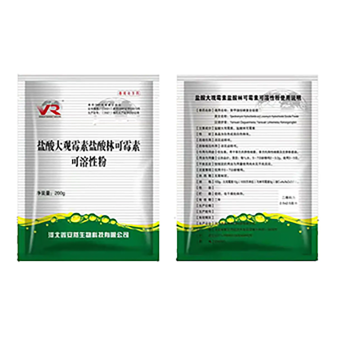- Afrikaans
- Albanian
- Amharic
- Arabic
- Armenian
- Azerbaijani
- Basque
- Belarusian
- Bengali
- Bosnian
- Bulgarian
- Catalan
- Cebuano
- Corsican
- Croatian
- Czech
- Danish
- Dutch
- English
- Esperanto
- Estonian
- Finnish
- French
- Frisian
- Galician
- Georgian
- German
- Greek
- Gujarati
- Haitian Creole
- hausa
- hawaiian
- Hebrew
- Hindi
- Miao
- Hungarian
- Icelandic
- igbo
- Indonesian
- irish
- Italian
- Japanese
- Javanese
- Kannada
- kazakh
- Khmer
- Rwandese
- Korean
- Kurdish
- Kyrgyz
- Lao
- Latin
- Latvian
- Lithuanian
- Luxembourgish
- Macedonian
- Malgashi
- Malay
- Malayalam
- Maltese
- Maori
- Marathi
- Mongolian
- Myanmar
- Nepali
- Norwegian
- Norwegian
- Occitan
- Pashto
- Persian
- Polish
- Portuguese
- Punjabi
- Romanian
- Russian
- Samoan
- Scottish Gaelic
- Serbian
- Sesotho
- Shona
- Sindhi
- Sinhala
- Slovak
- Slovenian
- Somali
- Spanish
- Sundanese
- Swahili
- Swedish
- Tagalog
- Tajik
- Tamil
- Tatar
- Telugu
- Thai
- Turkish
- Turkmen
- Ukrainian
- Urdu
- Uighur
- Uzbek
- Vietnamese
- Welsh
- Bantu
- Yiddish
- Yoruba
- Zulu
Dis . 02, 2024 03:06 Back to list
Effective Solutions for Eliminating Fleas, Ticks, and Heartworms in Pets
What Kills Fleas, Ticks, and Heartworms? An Overview of Effective Solutions
Fleas, ticks, and heartworms are common parasites that pose significant threats to the health of pets, particularly dogs and cats. Understanding how to effectively combat these parasites is crucial for pet owners who wish to ensure the well-being of their furry companions. Here, we’ll explore various methods and treatments that can kill fleas, ticks, and heartworms, ensuring that our pets remain happy and healthy.
Fleas Identification and Treatment
Fleas are tiny, wingless insects that thrive on the blood of their hosts, causing itching and discomfort. They can reproduce quickly, leading to infestations if not addressed promptly. To combat fleas, several treatments are available
1. Topical Treatments Spot-on treatments like Frontline and Advantage are applied directly to the pet's skin. These treatments contain insecticides that kill adult fleas and prevent egg development.
2. Flea Collars Flea collars can be an effective preventive measure. They release chemicals that deter fleas and prevent them from attaching to your pet.
3. Oral Medications Prescription medications like NexGard or Bravecto can kill fleas within hours, making them a quick solution for urgent infestations.
4. Environmental Control It’s essential to treat the environment as well. Vacuuming carpets, washing bedding in hot water, and using flea sprays or powders can help eliminate fleas from your home.
Ticks Prevention and Removal
Ticks are arachnids that latch onto the skin of pets and can transmit diseases, including Lyme disease and Rocky Mountain spotted fever. Here’s how to tackle ticks
what kills fleas ticks and heartworms

1. Preventive Treatments Similar to fleas, topical treatments and oral medications can be effective. Products like K9 Advantix and Seresto collars are designed to repel ticks and kill them upon contact.
2. Regular Checks After outdoor activities, inspect your pet for ticks. If you find one, use tweezers to grasp it as close to the skin’s surface as possible and pull upward with steady, even pressure.
3. Landscaping Keep your yard well-maintained to reduce tick habitats. Mowing your lawn and clearing brush can help minimize tick populations.
Heartworms Protection and Treatment
Heartworms are parasitic worms that primarily affect dogs but can also infect cats. They are transmitted through mosquito bites and can cause severe health problems, including heart failure. Here’s how to protect against heartworms
1. Preventive Medications The best way to combat heartworms is through prevention. Monthly heartworm preventatives like Heartgard and Interceptor can effectively kill juvenile heartworms before they mature.
2. Testing Annual heartworm tests are vital for dogs, especially in regions where heartworms are prevalent. Early detection can lead to more effective treatment if an infection occurs.
3. Treatment for Infected Pets If a dog tests positive for heartworms, a veterinarian may recommend a series of injections to kill adult heartworms, along with medications to manage inflammation and prevent complications.
Conclusion
Fleas, ticks, and heartworms can cause serious harm to our pets if not managed properly. A comprehensive approach that includes preventive measures, treatment options, and environmental hygiene is crucial in ensuring the health and happiness of our animals. Always consult with a veterinarian before starting any treatment to determine the most effective and safe options for your specific pet. By being proactive, we can protect our beloved companions from these dangerous parasites and give them the long, healthy lives they deserve.
-
Guide to Oxytetracycline Injection
NewsMar.27,2025
-
Guide to Colistin Sulphate
NewsMar.27,2025
-
Gentamicin Sulfate: Uses, Price, And Key Information
NewsMar.27,2025
-
Enrofloxacin Injection: Uses, Price, And Supplier Information
NewsMar.27,2025
-
Dexamethasone Sodium Phosphate Injection: Uses, Price, And Key Information
NewsMar.27,2025
-
Albendazole Tablet: Uses, Dosage, Cost, And Key Information
NewsMar.27,2025













